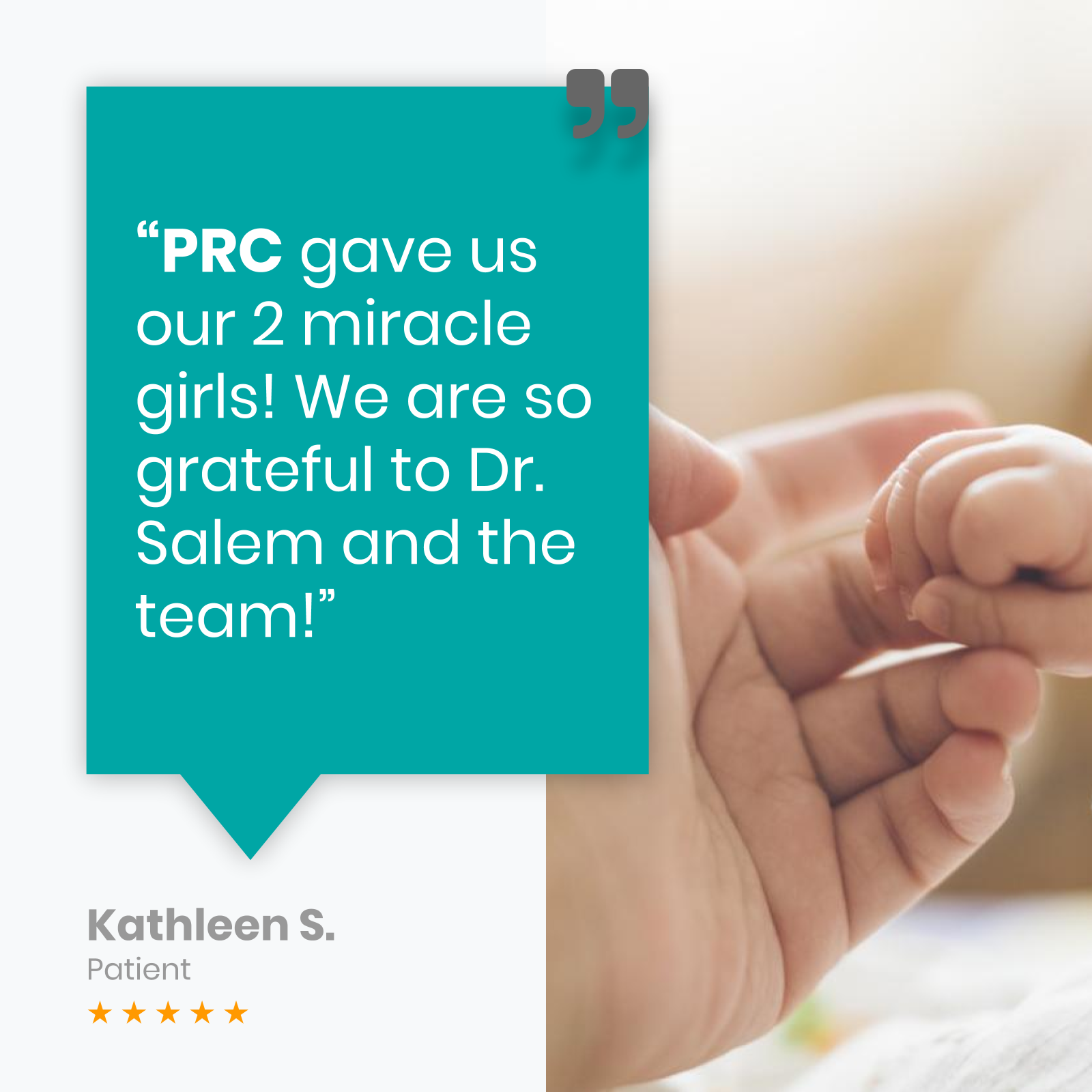Frequently Asked Questions (FAQ)
General
Is infertility common?
Yes. Infertility occurs in about 13% of women between the ages of 15-49. It is estimated that roughly 10% of men in the United States experience fertility challenges.
I already have an OB/GYN. Why do I need a fertility specialist?
Having a trusted OB/GYN (obstetrician-gynecologist) is important for maintaining optimal female reproductive function and ensuring healthy pregnancies when they occur. OB/GYNs offer indispensable services by screening for a host of medical concerns that could contribute to fertility challenges and impair overall health. Fertility specialists are OB/GYNs with additional specializations in fields that contribute to reproductive health, such as endocrinology. They are also trained to perform highly complex surgical procedures correcting delicate issues like congenital structural abnormalities and fibroids.
Additionally, fertility specialists help both women and men enhance their odds of conception by providing a diverse spectrum of treatments that standard OB/GYNs generally do not. Such treatments include in vitro fertilization (IVF) involving donor eggs or donor sperm, and – in most cases – ovulation induction, intrauterine insemination (IUI), and intracytoplasmic sperm injection (ICSI).
Am I too old to get pregnant?
Most women experience a decline in fertility at around 35 years of age. However, by the time women generally reach 45 and older, the chances of conceiving will have decreased to approximately 5% during each cycle.
This does not mean achieving pregnancy or carrying a pregnancy are impossibilities; every woman is different, and we will provide a thorough evaluation and treatment program based upon your unique issues and goals.
What causes female infertility?
Female infertility can have various causes, which you can explore on our female infertility information page. Women who experience fertility challenges during their peak reproductive years might have structural issues that inhibit either conception or the ability to carry a pregnancy to term. These may be caused by infection, abnormal tissue growth, or hormone imbalances, among other issues.
In general, female fertility starts to decline by the mid-to-late 20s. As women reach their 30s and 40s, conception becomes increasingly difficult. After menopause, the ability to conceive ceases entirely.
What causes male infertility?
Male infertility – the inability to produce sufficient healthy sperm or the failure to transfer sperm to an egg – can be caused by numerous factors. The most common cause of male infertility is insufficient sperm production due to congenital abnormalities, acquired structural abnormalities, infection, or health concerns like high blood pressure or diabetes.
Men generally experience a decline in sperm count as they age, along with a decline in sperm motility. You can learn about the most common causes on our male infertility information page.
Is egg donation the same as surrogacy?
No. Egg donation is the process of surgically extracting a mature egg from a donor for future IVF treatment. Surrogacy involves implanting an embryo into a surrogate so that she can carry the pregnancy to term. While some surrogates use their eggs, the practice is becoming increasingly rare due to the legal gray areas surrounding the biological parenthood of the surrogate. It is much more common for a surrogate to host a baby that is not biologically her own.
Will I have to undergo IVF to get pregnant?
Under certain circumstances, IVF could be the treatment option that yields the best outcomes. Patients who have fallopian tube obstructions or have experienced significant ovarian disorders might find IVF appropriate treatment. IVF is also successfully used to address male factor fertility. Your fertility specialist will determine the safest and most effective strategy for you to achieve pregnancy.
Are there options besides IVF?
Non-IVF treatments are generally considered when there is no instance of male infertility or if the patient has a fertility challenge that can be addressed surgically. Your fertility specialist will help you understand all of your treatment options.
Practice
How experienced are your fertility specialists?
Our practitioners have decades of experience helping diverse patients achieve successful pregnancies. Please visit our biography page to learn more about our fertility specialists.
What are your success rates?
Our success rates are consistently above the national average for transfers resulting in live births across all age groups. Please visit our success rates page to learn more.
Can you help us find surrogates?
Yes. We work closely with a service partner that helps potential parents connect with surrogates.
Do you offer male infertility treatments?
We offer conception options that specifically address male infertility due to suboptimal sperm production. We provide intrauterine insemination (IUI) procedures and intracytoplasmic sperm injection (ICSI), which are highly effective in increasing the concentration of healthy sperm and enhancing the odds of fertilization.
Do you treat LGBTQ patients?
Yes. We are proud to work closely with the LGBTQ community. We offer a diverse spectrum of treatment plans designed to address the reproductive needs of male, female, trans, and non-binary potential parents.
Do you treat single patients?
Yes. We respect everyone’s right, regardless of relationship status, to build their families on a timeline that is optimal for them.
Will you accept my insurance?
Please contact our representatives with your insurance information to determine if your benefits offer the appropriate coverage for your desired treatments.
Treatments
Pacific Reproductive Center has been successfully aiding conception for over two decades. We optimize the conditions of fertility treatment to give every potential parent the greatest chance of successful childbirth.
Resources
We ensure that every patient fully understands their medical condition and treatment options available to them. We understand each patient is unique so we help guide you through the best option to support your own fertility journey.
Looking for the Best Fertility Clinic in Southern California?
Pacific Reproductive Center has four convenient locations throughout Southern California, making it easy for patients to receive quality care close to home. Each IVF fertility center has an on-site lab, next-generation services, and state-of-the-art equipment.
Whether in Glendale, Torrance, Irvine, or Corona, our world-class fertility doctors can help you build the family you’ve always wanted.
3720 Lomita Blvd, Suite 200 Torrance, CA 90505
116 E. Broadway, Suite 300 Glendale, CA 91205
10 Post Irvine, CA 92618
381 Corporate Terrace Corona, CA 92879




